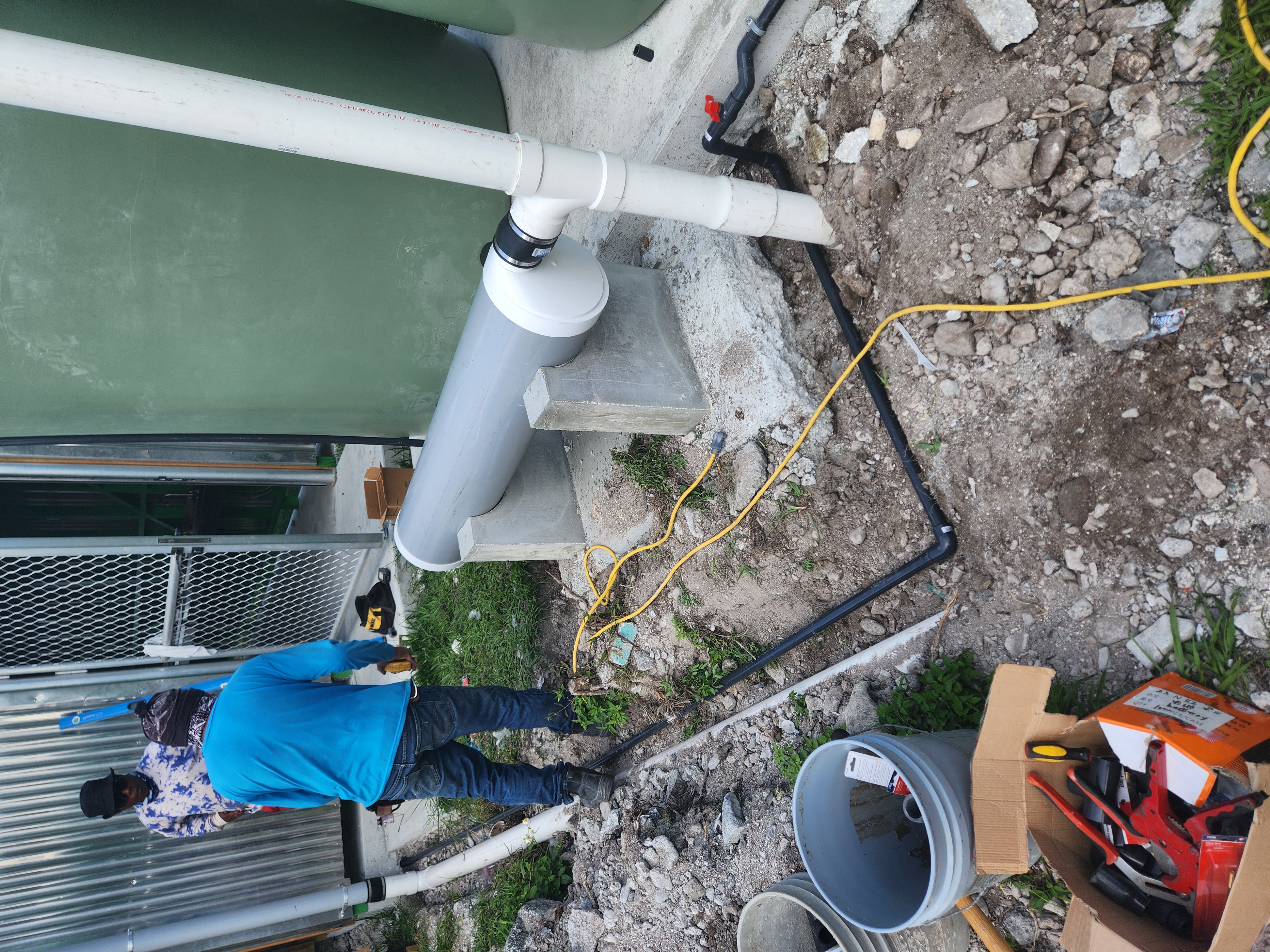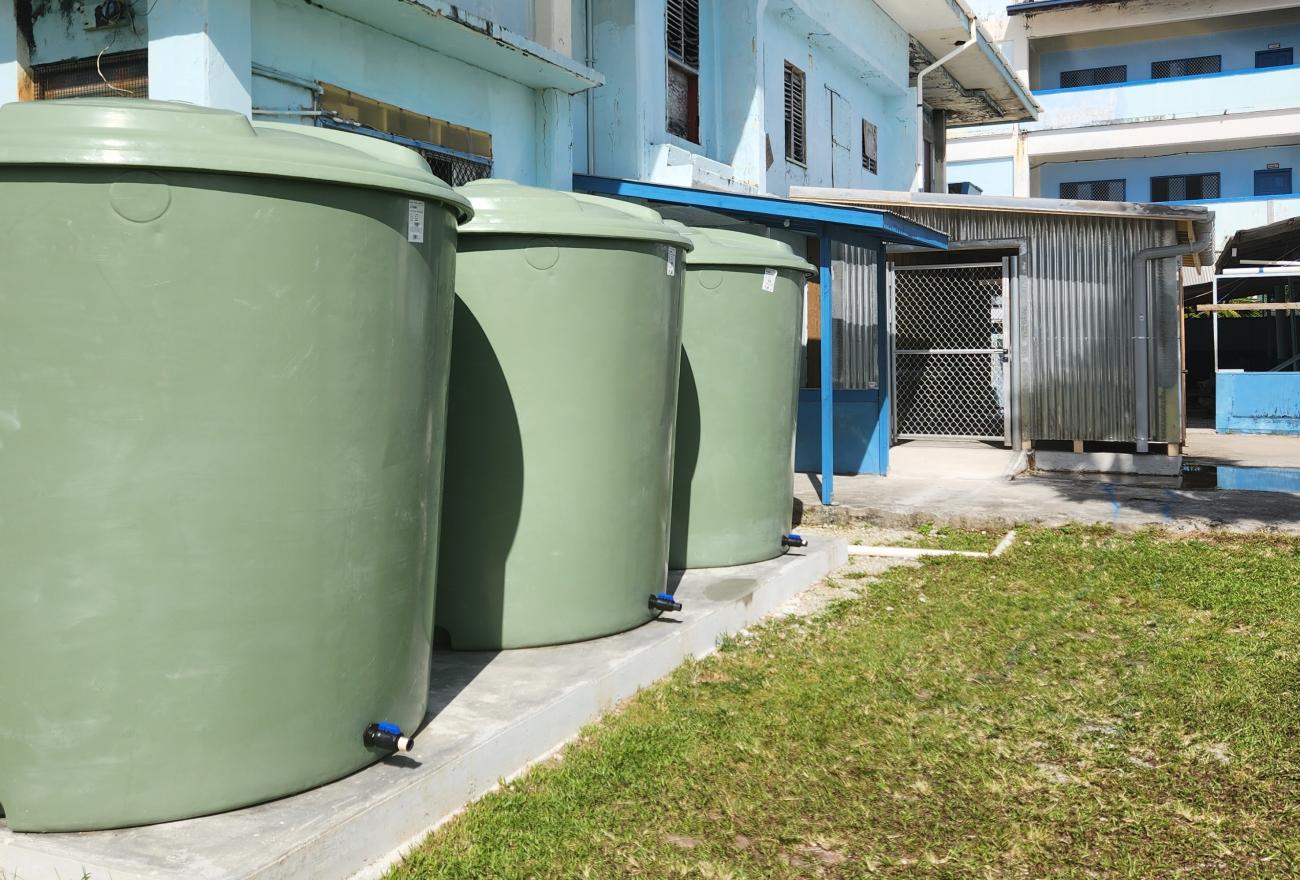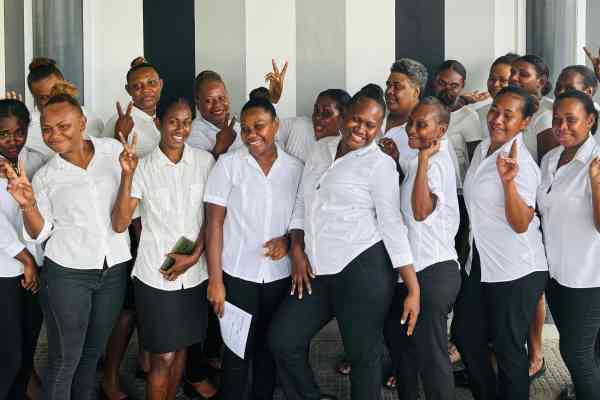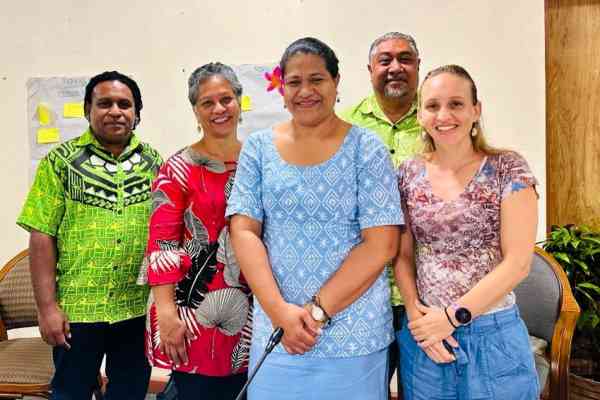(contenu disponible en anglais uniquement)
Flowing forward - Marshall Islands schools' drinking water project
To increase students' access to safer drinking water, the Republic of Marshall Islands Environmental Protection Authority (RMI EPA), supported by the Pacific Community (SPC), is piloting the construction of drinking water stations in six Majuro schools.
The water stations, which are targeted for completion in March 2024, will improve access to clean water supply for about 2,000 students.
Each water station will have filtration/treatment units installed to improve the quality of rainwater that will be collected. The filtration/treatment units include the:
- first flush diverter, filters all the sediments that have collected from the rain catchment, followed by
- microfiltration, which removes the smaller amounts of suspended materials from the water, and finally finished with
- ultraviolet (UV) disinfection, which treats the water from microorganisms (such as harmful bacteria).
 The following schools are participating in the pilot programme: Rita Elementary School (RES), Assumption School (AES/AHS), Cooperative School (COOP), North Delap Elementary School (NDES), Long Island Elementary School (LES), and Rairok Rainbow Elementary School (RRES).
The following schools are participating in the pilot programme: Rita Elementary School (RES), Assumption School (AES/AHS), Cooperative School (COOP), North Delap Elementary School (NDES), Long Island Elementary School (LES), and Rairok Rainbow Elementary School (RRES).
Installing these drinking water stations will benefit not only the students at these schools, but also the surrounding communities by providing another source of clean water.
EPA General Manager, Moriana Phillip said, “We’re pleased to be undertaking this important work with SPC to bring the topic of water security to schools and to provide school children with clean drinking water. This is especially important as they are not just school drinking water stations, they also become important community resources. Under the Office of Chief Secretary Disaster Response Plan, these schools become disaster shelters.”
RMI EPA and project staff will continue to work closely with the public school system and all six schools after the water stations are completed, to implement water safety plans to build more awareness and skills in rainwater harvesting system monitoring and management.
“SPC is committed to supporting participating countries through the Water Scarcity project in the form of technical support, infrastructure and capacity building. We are proud to be able to enable the next generation of leaders to better understand the impact of water scarcity on communities and value of access to clean and safe drinking water through this initiative. The government and local leaders have identified the need to have local driven solutions to water security issues and this has been one such activity where we’ve worked closely with them,” said Water Scarcity Project Manager, Uatea Salesa.
The installation of the treated drinking water stations is led by RMI EPA and SPC through the Managing Water Scarcity through Strengthened Water Resources Management (Water Scarcity) Project. The project, funded by the New Zealand Government’s Ministry of Foreign Affairs and Trade (MFAT), supports eight Pacific atoll and small island countries, including RMI, to respond to ongoing water scarcity issues and build greater resilience.


